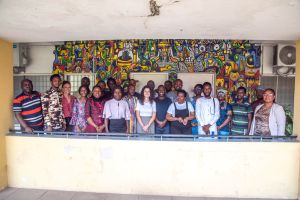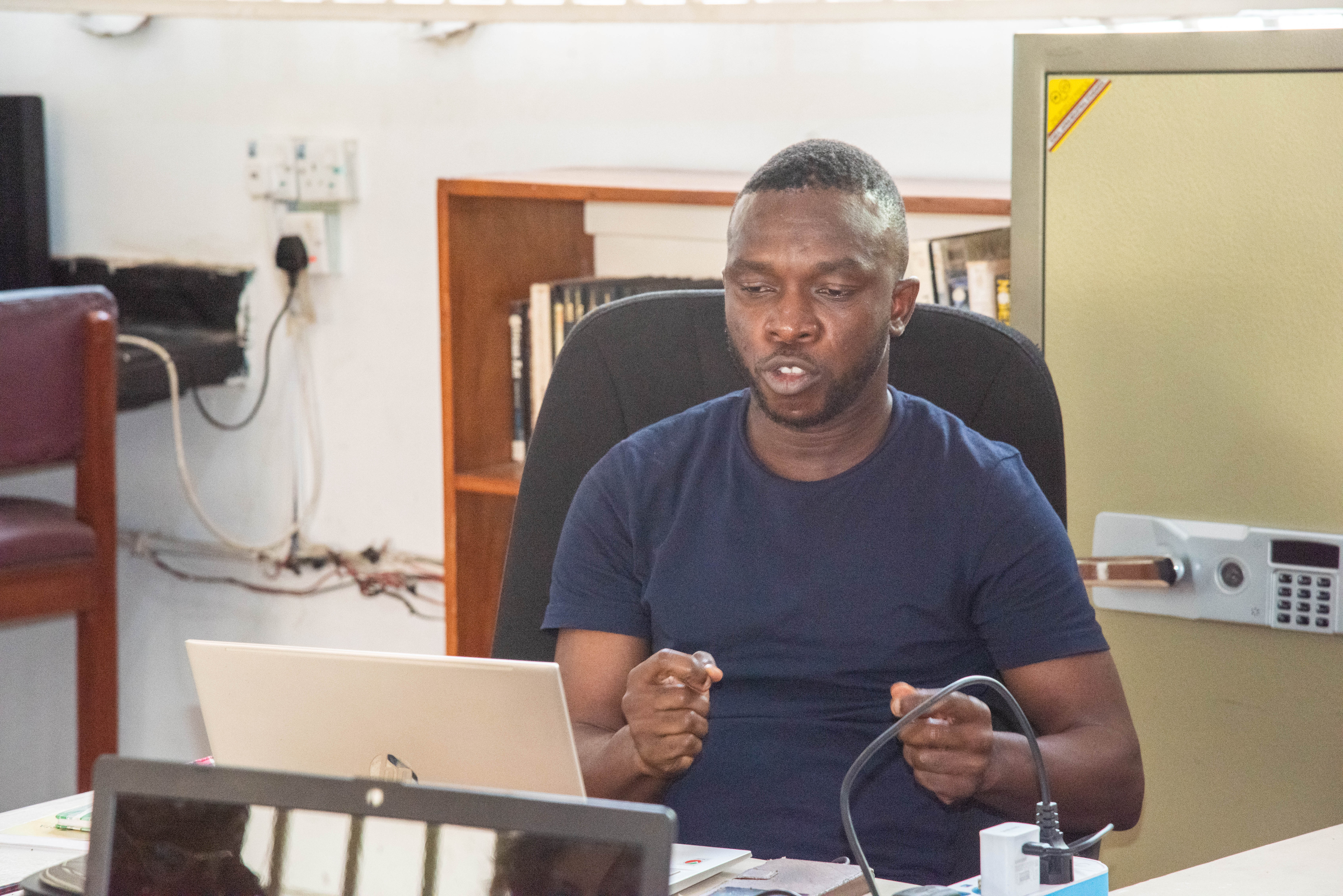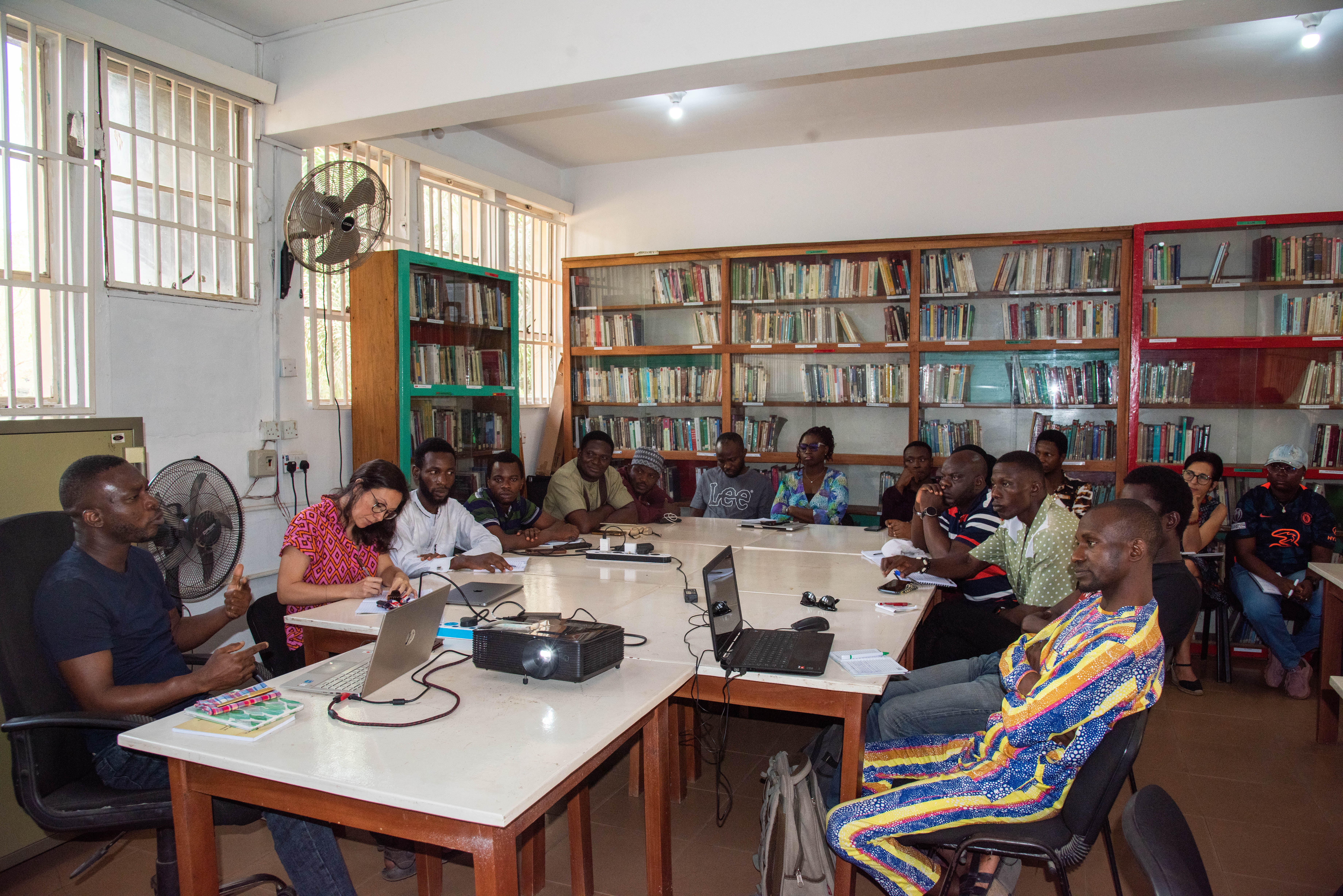Methodological Seminar - Keeping notes from the Field - Adedeji Adebayo
 IFRA-Nigeria had the pleasure to welcome Adedeji Adebayo on 22 January, for our first Methodological Seminar of 2025. IFRA-Nigeria director, Dr Barbara Morovich, introduced Dr Adebayo, a trusted junior research associate of IFRA-Nigeria's Elections Observatory. Dr Adebayo obtained his PhD from the Peace and Conflict Department of the University of Ibadan.
IFRA-Nigeria had the pleasure to welcome Adedeji Adebayo on 22 January, for our first Methodological Seminar of 2025. IFRA-Nigeria director, Dr Barbara Morovich, introduced Dr Adebayo, a trusted junior research associate of IFRA-Nigeria's Elections Observatory. Dr Adebayo obtained his PhD from the Peace and Conflict Department of the University of Ibadan.
During the course of his insightful presentation, he reflected on his experiences as a field or research assistant before his doctorate, and the benefit he gained from them. He argued that this allowed him to become familiar with new ways of doing research, acquire new skills and build a network of trusted researchers that continues to be very beneficial in his own work today. You will find a summary of his intervention below.
Moreover, if you're interested in learning more about Dr Adebayo's work, click here "Getting in Touch with the Out of Reach: Fieldwork Strategies in Research on Women and Politics (South-West of Nigeria)" to read his article in Sources issue n°7 "Varia".
Dr Adebayo began by presenting the benefits of confirmed and in-training researchers sharing practical experiences, which helped him later in his own work studying structural violence within the prism of gender in Nigeria. Next, he laid out the key steps of fieldwork : community entry, conducting interviews, gathering accurate and credible data, carrying out simultaneous translation, browsing archives and sorting data.

He exemplified his point by looking back on three positions he held as a research or field assistant. To start, he collaborated with Dr Sara Panata on women's mobilization in south-west Nigeria, where he carried out a historical research with the use of archives and subsequent document analysis. Next, alongside Dr Emilie Guitard, he discovered ethnographic work through the Treebadan Project. Dr Adebayo experimented with a long interview format and visual methodologies like photography, inclusion of a visual artist and maps. His final experience touched on patrimonial/programmatic politics. He reflected on Portia Roelofs' supervision and pedagogic approach, and how he learnt from it.
Next, Dr Adebayo illustrated with anecdotes some of the lessons he drew from these three experiences: the use of original note-taking methods such as sketches, new forms of interviews, broadening the range of data to include, being more flexible in interviews and dealing with tricky situations such as hostile or uncooperative interviewees.
He also delved into more testing aspects of research such as delegating, the impact of stress and boredom in translation and transcription work. He also reflected on the challenges of positioning yourself when your identity as a researcher or other is challenged in ways which can complicate research.

Finally, he explained that these activities can provide better research capacities and increased confidence in one's own skills. Moreover, he built from this a network which led to more opportunities along the way, and provided perspective and feedback. To conclude, he emphasized that the key of getting the most out of a fieldwork experience is being intentional in learning from it.
A Q&A followed Dr Adebayo's presentation. Participants discussed the matter of recognizing the co-production of research, combining one's own research with a field assistant's duties, managing positionality in the face of obstacles to research, hard to reach persons of interest, determining what is relevant in an in-depth interview, the need for statistics and much more.

Social Media
Mailing List